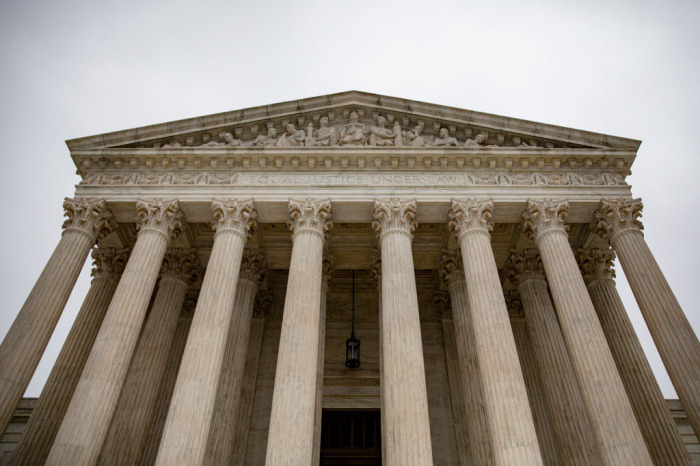
The United States Supreme Court has revived a lawsuit filed by an Ohio woman who claims she was denied an employment opportunity because she's heterosexual.
In a unanimous opinion issued Thursday, the Supreme Court ruled in Marlean Ames v. Ohio Department of Youth Services that a lower court decision against Ames is to be reconsidered.
Justice Ketanji Brown Jackson authored the court opinion, taking issue with an earlier appeals court decision which denied Ames’ complaint on the basis of “background circumstances.”
The “background circumstances” rule stipulates that a person belonging to a majority group has a greater burden of proof to show that they were discriminated against on the basis of identity.
“We hold that this additional ‘background circumstances’ requirement is not consistent with Title VII’s text or our case law construing the statute,” wrote Jackson. “Accordingly, we vacate the judgment below and remand for application of the proper prima facie standard.”
Jackson noted that the earlier ruling by the U.S. Court of Appeals for the Sixth Circuit against Ames wrongfully used the “background circumstances” standard.
“The court then recounted how Ames was qualified, had been denied a promotion in favor of a gay candidate, and was later demoted in favor of another gay candidate — evidence that would ordinarily satisfy her prima facie burden — before it specifically faulted Ames for failing to make the ‘requisite showing of ‘background circumstances,’” she continued.
“In short, the Sixth Circuit expressly based its holding affirming summary judgment in favor of the agency on Ames’s failure to satisfy a heightened evidentiary standard. Ohio’s attempt to recast the ‘background circumstances’ rule as an application of the ordinary prima facie standard thus misses the mark by a mile.”
Justice Clarence Thomas wrote a concurring opinion, being joined by Justice Neil Gorsuch, in which he wanted “to highlight the problems that arise when judges create atextual legal rules and frameworks.”
“Judge-made doctrines have a tendency to distort the underlying statutory text, impose unnecessary burdens on litigants, and cause confusion for courts,” Thomas wrote. “The ‘background circumstances’ rule — correctly rejected by the Court today — is one example of this phenomenon.”
Ames began working for the Ohio Department of Youth Services in 2004, serving in various capacities over the years. In 2019, she applied for a new position, but did not get it. Shortly thereafter, she was demoted to a lower-paying job.
A heterosexual woman, Ames’ previous position was filled by a homosexual man, while the position she had applied for was given to a homosexual woman.
Ames filed a complaint in a federal court in Ohio, claiming discrimination on the basis of sexual orientation in violation of federal law.
In December 2023, a three-judge panel of the Sixth Circuit ruled against Ames, issuing a per curiam opinion that upheld a district court ruling against her.
The circuit panel had concluded that Ames “lacked evidence of ‘background circumstances’ necessary to establishing her prima-facie case for her claim based on sexual orientation” and “lacked evidence of pretext for purposes of her sex-discrimination claim.”
“Ames’s only evidence of a pattern of discrimination against heterosexuals is her own demotion and the denial of the Bureau Chief position,” read the circuit opinion.
“Under our caselaw, however, a plaintiff cannot point to her own experience to establish a pattern of discrimination.”